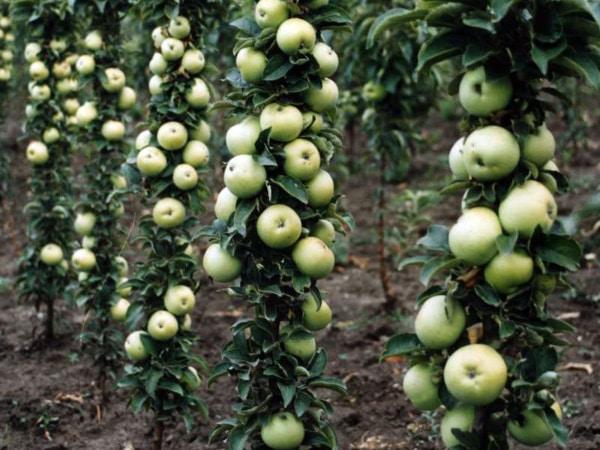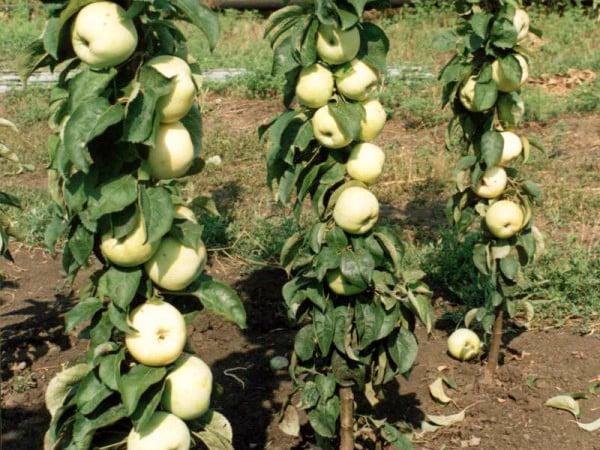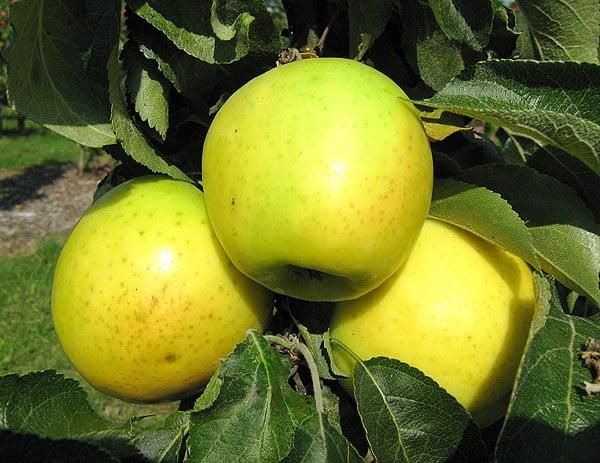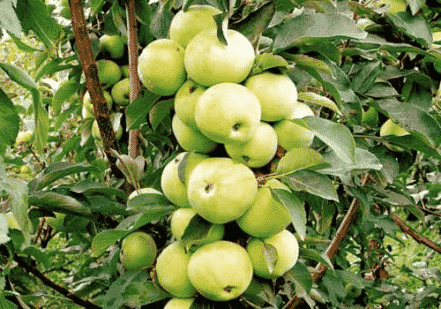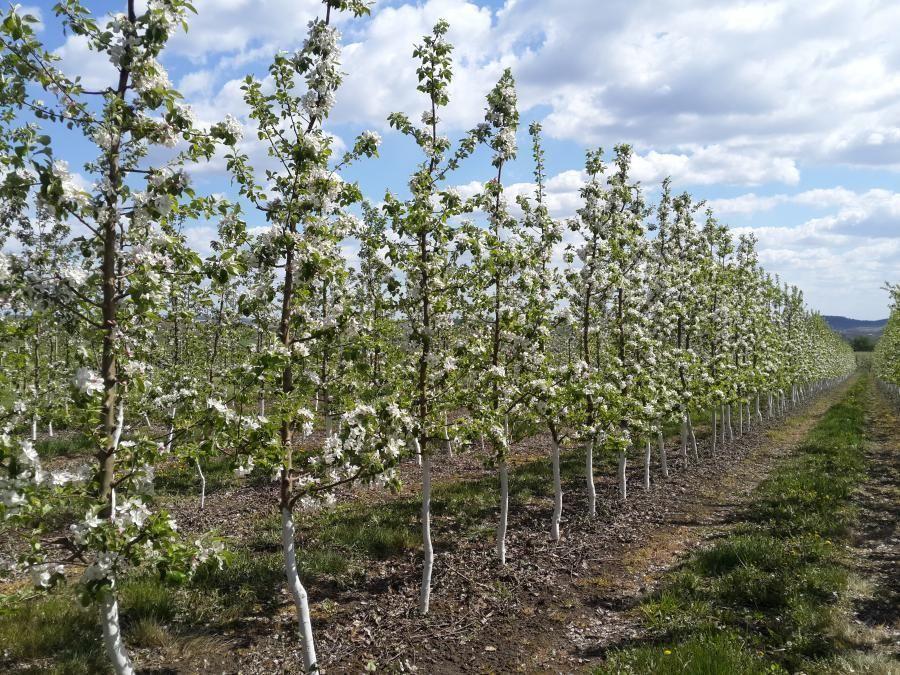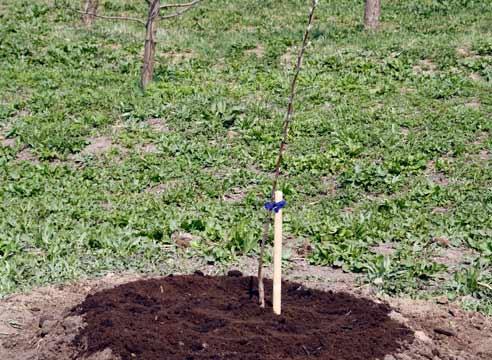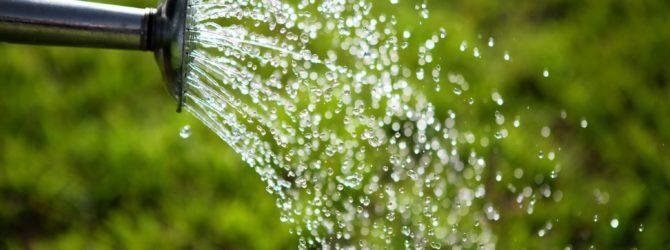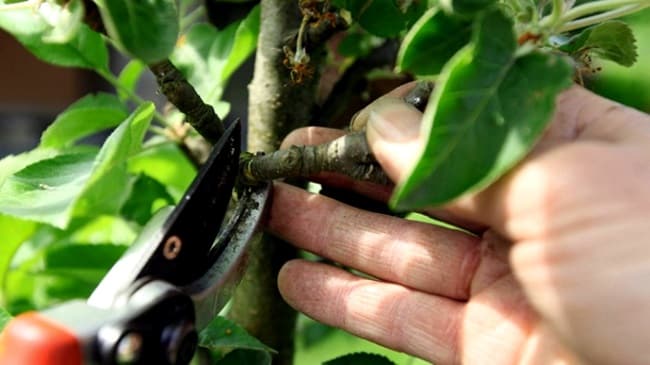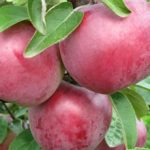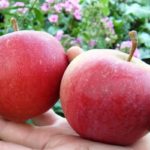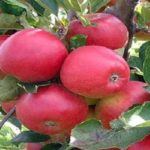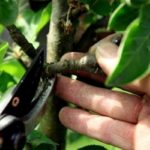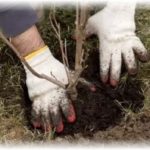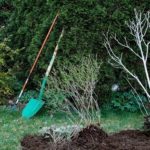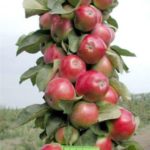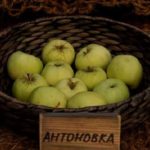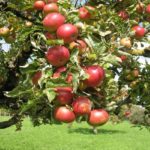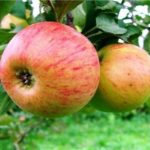The compact size of the columnar Malyukha apple tree attracts gardeners. But to this we can add the excellent taste of the fruits, their quantity, as well as the decorativeness of the tree. Columns of apple trees are preferred by those who have little space allocated for the garden. The plantings are easy to care for and quickly begin to bear fruit.
- History and description of the variety
- Growing area
- External parameters
- Tree growth
- Crown size
- Annual growth
- Lifespan of a tree
- Specifications
- Pollination and yield
- Taste qualities
- Frost and drought resistance
- Immunity to diseases and insects
- Growing the columnar apple tree Malyukha
- Preparation of seedlings
- Optimal soil composition
- Disembarkation dates and scheme
- Features of caring for young and mature trees
- Irrigation frequency
- Foliar and root feeding
- Loosening the soil
- Crown trimming
- Preventative treatment
- Preparing the apple tree for winter
History and description of the variety
Canada can be considered the homeland of all columnar apple trees, where this type of horticultural crop first appeared. By crossing the Vazhak variety, the Malyukha apple tree was bred.
Its peculiarity is that the tree:
- reaches a height of 1.8 to 2 meters;
- winter-hardy;
- produces fruits weighing 250 grams;
- high-yielding, up to 13-15 kilograms.
Apples are picked from the trees in September. They have a sweet and sour taste and juicy whitish flesh. The pronounced aroma of Malyukha apples is noted.
Growing area
The plant is suitable for cultivation in the Central Black Earth region. But the crop is successfully grown in the Urals and in the southern regions of Siberia.
External parameters
The columnar crown of the Malyukha apple tree looks decorative. Plants planted along the border of the site can decorate the garden with the greenery of the pyramidal top.
Tree growth
The tree has a medium-sized trunk, which grows up to 2 meters in an adult plant. If conditions are unfavorable for the crop, then the height of the apple tree is smaller.
Crown size
The crown of the tree variety has medium foliage. It looks like a medium-sized pyramid, decorated with evenly spaced fruits.
Annual growth
The shoots of the tree grow annually by 10-15 centimeters. Therefore, the distance between seedlings should not be large.
Lifespan of a tree
Although the columnar apple tree Malyukha can live more than 15 years, its fruiting by this period is reduced. The peak of high yields occurs on an 8-10 year old tree.
Specifications
In fruit culture, it is not the decorativeness of the plant that is valued, but its fruits and their quality. They can appear during normal pollination of Malyukha apple tree flowers.
Pollination and yield
Columnar crops need pollinators nearby. Among them, apple trees of the Valyuta, Chervonets, and Kitayka varieties are chosen. Timely pollination allows you to get several fruits in the first year after planting the tree, then 4-5 kilograms. But in an adult tree, the number of apples increases and reaches 12-15 kilograms.
Taste qualities
Malyukha apples are very tasty. They are juicy, have a lot of sugar, little starch, a little acid, but it is pleasant. When eating fresh fruits, the pulp breaks off. In addition, apples are fragrant.
Frost and drought resistance
The garden crop withstands winters with frosts of minus 30 degrees. Slightly damaged by spring frosts.
You can grow Malyukha in steppe and arid regions, providing timely planting with moisture.
Immunity to diseases and insects
The advantage of columnar varieties is their immunity to fungal diseases. And pests rarely attack the column.
Growing the columnar apple tree Malyukha
There are many advantages to cultivating this variety. The short tree is easy to care for. It is unpretentious. You just need to loosen the soil in the garden in time and apply fertilizer if you want high yields of apples.
Preparation of seedlings
For planting, you need to choose annual or biennial apple tree seedlings. When purchasing, carefully inspect the tree for damage and rot. The roots are inspected to ensure their integrity. If seedlings are transported to the garden, they are placed in a pot made of clay or earth. You can't let the roots dry out.
Optimal soil composition
Apple trees need nutritious soil with neutral acidity. They grow and bear fruit better on chernozem, slightly podzolized soils. Swampy areas that are rocky and saline in composition are not suitable for cultivation.
Disembarkation dates and scheme
In the northern regions, it is necessary to plant a column plantation in the spring, when the buds have not yet begun to bloom. Autumn is also suitable for planting, but no later than the first ten days of October. In warm areas, you can choose both autumn and spring planting. Apple trees should be planted where groundwater does not approach the surface closer than 2.5 meters. The culture prefers sunny slopes of the garden.
The pits are prepared in advance, placing them at a distance of 40-50 centimeters from each other. There is no need to dig them under shady trees. The depth of the hole reaches 40 centimeters, and the width - 50. The distance between the rows of the column is 2-3 meters.
Features of caring for young and mature trees
Caring for a columnar crop is easy. Here the emphasis is on clean soil, watering and fertilizing plants.
Irrigation frequency
After planting, apple trees are watered abundantly, taking care not to dry out the root system. For an adult tree, it is important to irrigate during the formation of ovaries and before wintering.
Foliar and root feeding
Organic fertilizers are used for the Malyukha apple tree. Mullein is diluted with water in a ratio of 1:3, kept in a barrel for 3-5 days, and then the solution is brought to a concentration of 1:5 and watered over apple trees. It is useful to add phosphorus-potassium fertilizers after flowering. For 1 square meter of planting, use a bucket of mineral fertilizers.
Root feeding is combined with foliar feeding.A urea nutrient solution is prepared for foliar feeding, which requires 2 tablespoons of the substance per 10 liters of water.
Loosening the soil
For active growth and development of a columnar crop, it is important to loosen the soil around the tree trunk up to 3 times per summer. In spring and autumn, they organize digging of the soil, but in such a way as not to damage the roots of the tree.
Crown trimming
Already from the 2nd year after planting the Malyukha variety, the tree crown is formed. To do this, shorten the side branches to the 2nd bud. Then every year the procedure for young shoots is repeated. The branches that bear fruit are cut off in the fall, leaving some of the young ones. This is how a standard with a cone-shaped or cylindrical crown is formed. In the spring, you need to remove diseased and damaged branches.
Preventative treatment
To protect the young tree from diseases and pest attacks, seedlings are treated with fungicidal preparations. The product “Thunder” saves you from ants and aphid carriers. Wrapping the trunk of an apple tree with tar paper and trampling snow around the trees in winter will not prevent rodents.
Preparing the apple tree for winter
Young apple trees of the Malyukha variety must be protected from frost and cold winds. They are whitened in the fall, and the trunk is wrapped in several layers of non-woven material. Adult plants need to be covered in gardens in Siberia and the Urals.

